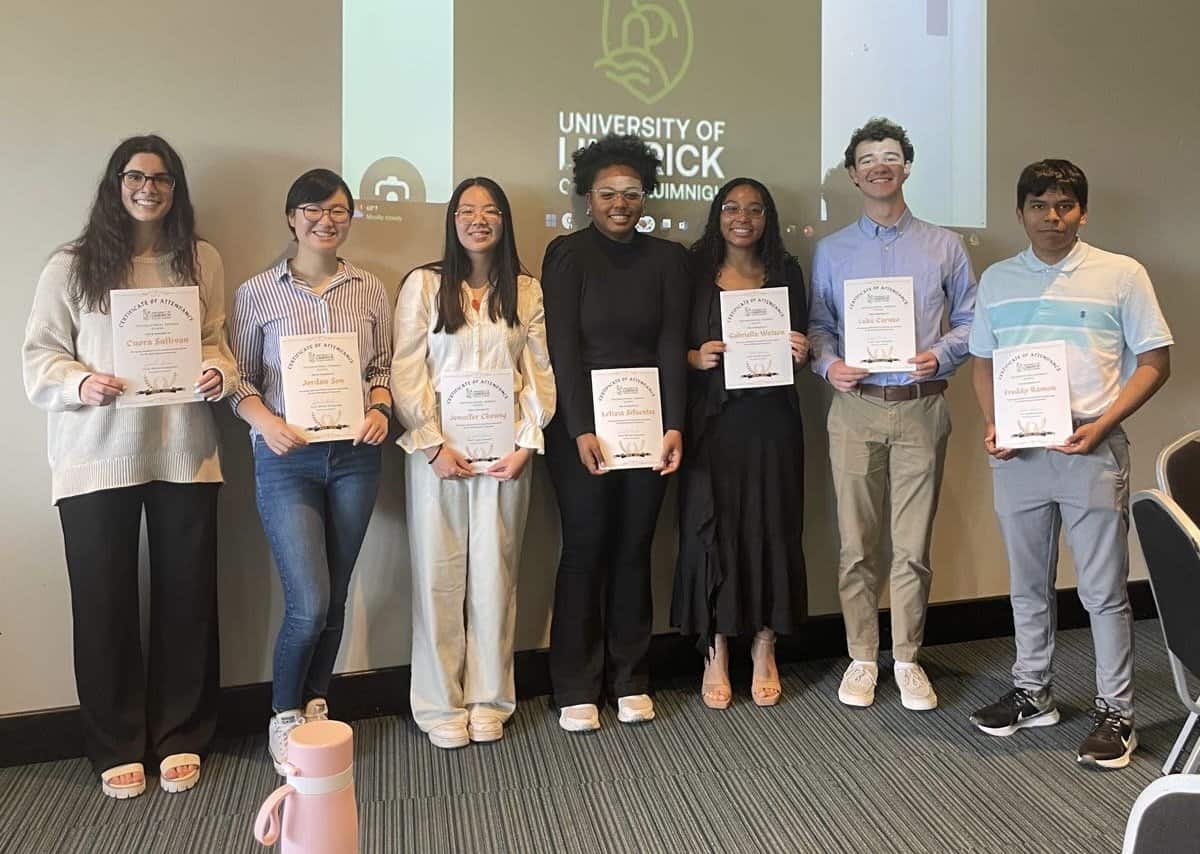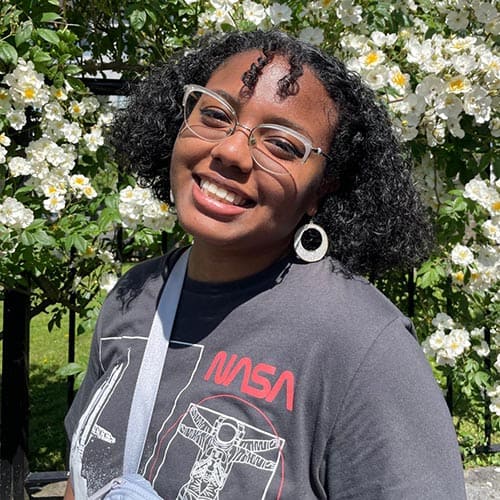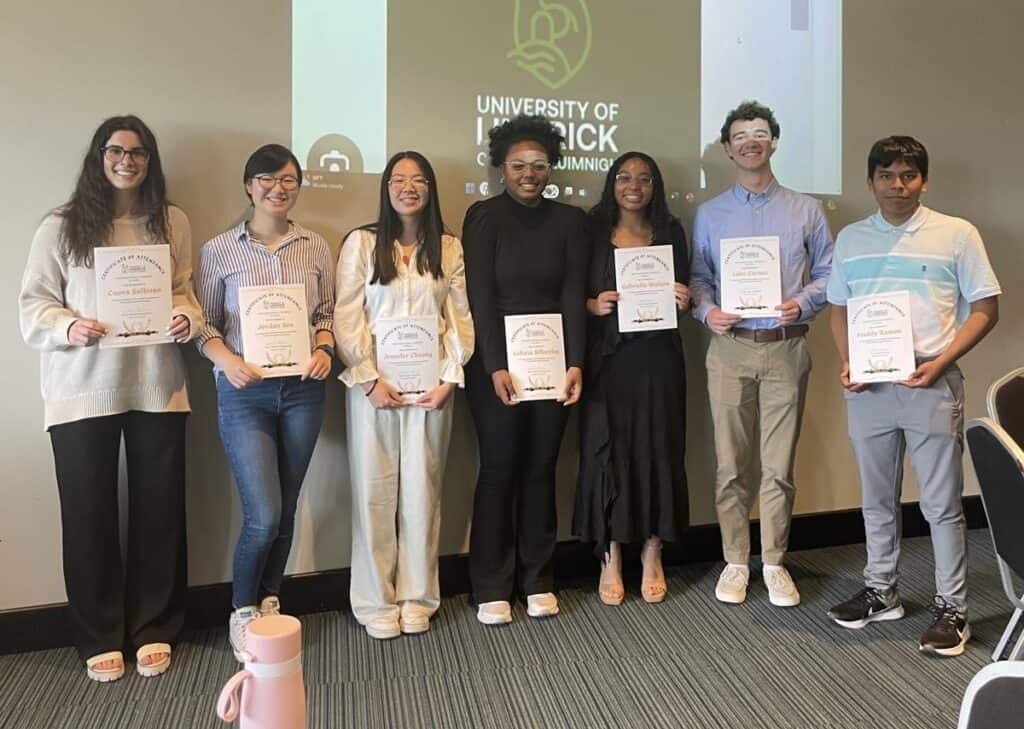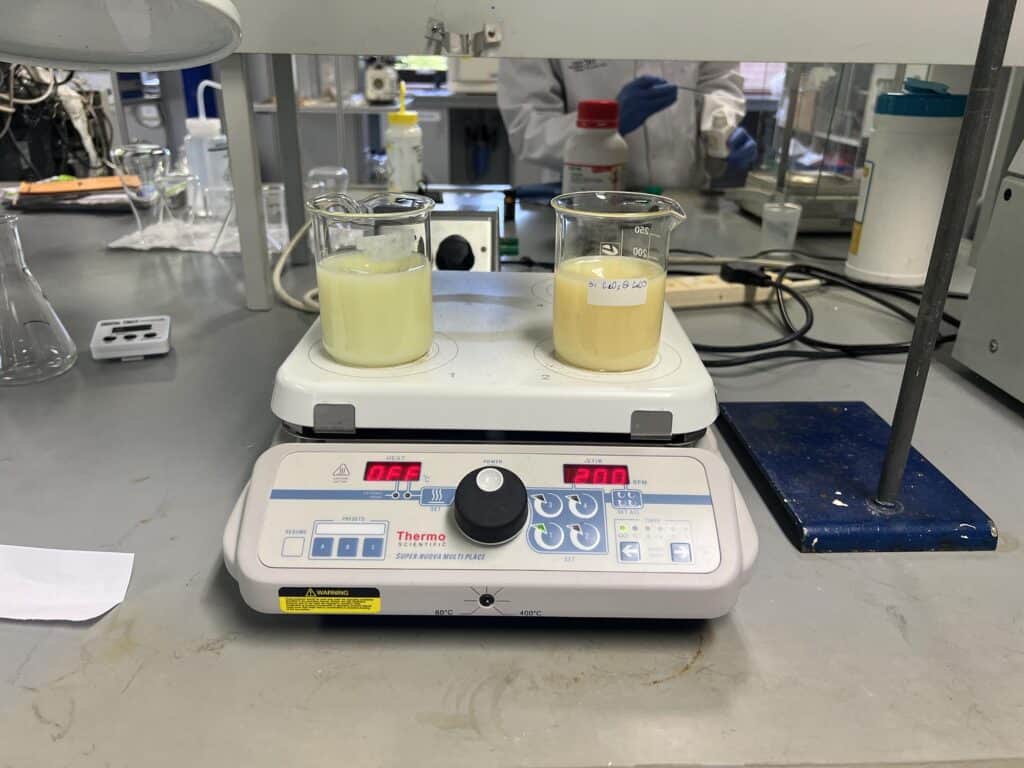
Q&A with Chemical Engineering undergraduate student Letizia Sifuentes
Letizia Sifuentes discusses her summer research experience abroad at the University of Limerick.

Letizia Sifuentes discusses her summer research experience abroad at the University of Limerick.
Letizia Sifuentes is a rising junior in the Department of Chemical Engineering with a concentration in Materials Science and Engineering. This summer, Sifuentes traveled to Limerick, Ireland, to participate in the University of Limerick’s STEM Summer Research Program. The 8-week program allows students to pursue a research project of their choice under the guidance of renowned faculty, providing them with the opportunity to hone essential skills while gaining career experience.
Sifuentes worked under the supervision of University of Limerick Associate Professor Witold Kwapinski and postdoctoral researcher Misganaw Zeleke to investigate the efficiency of purifying industry waste water using nanomaterial composites.

What was a typical day in the program like for you?
Lab days typically went in a set order, as some of these tasks took all day. One day, I’d synthesize a nanomaterial composite. On another day, I’d test the nanomaterial’s efficiency in making the industry waste non-toxic. Then, I’d characterize the material with different machines to try to answer why the nanomaterial did (or didn’t) work as intended.
What did you love most about your research experience?
I loved being abroad and applying topics and techniques I had learned in my ChE and MSE classes to the real world. It’s nice to be reminded that what I’m learning is actually important!
Was anything especially challenging during your research program?
It was challenging to balance my time in the lab, socializing with my peers, and doing my remote job to help fund my time abroad. Even then, my supervisor and PI were very understanding and were willing to give me time to myself.

How did your experience contribute to your understanding of chemical engineering principles and concepts?
The lab tasks were largely chemistry-based, as synthesizing the nanomaterials involved a lot of chemicals and chemistry jargon. However, the mechanisms of the reduction of the industry waste were ChE/MSE-based, as we focused largely on semiconductor mechanisms, REDOX reactions, and the material’s surface morphology.

How will your experience help you reach your career goals as a chemical engineer?
I’ve gained invaluable experience in why staying curious is important for expanding research and approaching current world issues, as solutions out of context are bound to fail. This is important in both research and industry jobs.
What skills or knowledge have you gained that you believe will help you in the future?
I’ve learned how to work in a diverse lab space, as most of my colleagues were not native to Ireland or America. I’ve also learned how to interpret and use many characterization techniques which are useful in research careers. These techniques also enforce my understanding of material properties/mechanisms in future jobs.
What advice or lessons learned would you pass on to other ChE students considering pursuing summer research opportunities?
I would advise other ChE students doing summer research to pursue a lab you’re passionate about and continue to be open minded, patient, and–most importantly–curious about your research topic!
Sifuentes is excited to be able to apply the skills and experiences she learned from her time at the University of Limerick to future career and academic endeavors moving forward. She would like to thank her supervisors Professor Witold and Dr. Misganaw, as well as her peers Cuora Sullivan, Jordan Son, Jen Cheung, Amina Watson, Luke Caruso, and Freddy Ramon, for supporting her throughout her time abroad.